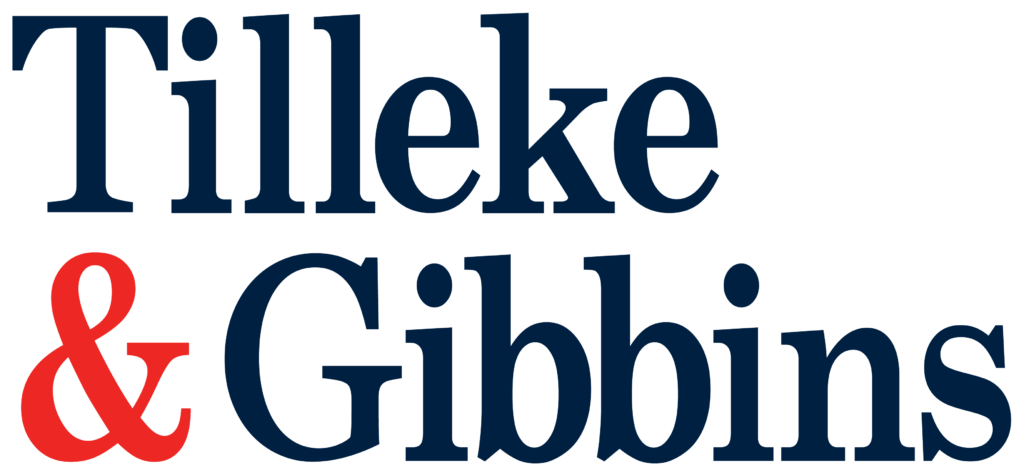Introduction
This article provides a summary of Myanmar’s tax and tariff updates in 2022. Perhaps most prominent are the commercial tax, special goods tax, and tariff rate exemptions for battery electric vehicles (BEVs) and an increase in special commercial income tax for companies engaging in oil and gas exploration and production in Myanmar. This is good news for environmental protection efforts through taxation law. Additionally, Myanmar announced its updated Customs Tariff of Myanmar 2022, which covers internationally classified harmonized system (HS) codes and the HS codes of the ASEAN Harmonized Tariff Nomenclature. Furthermore, Myanmar’s Internal Revenue Department (IRD) also issued clarifications on tax avoidance, negligent underpayment of tax, misrepresentation of tax information, tax evasion, withholding tax on services, and tax refunds.
Union Taxation Law 2022 and Amendment
On March 30, 2022, the Union Taxation Law 2022 was enacted by the State Administration Council (SAC) with the SAC Law No. 6 of 2022; the law was further amended on November 17, 2022 by SAC Law No. 48 of 2022. The amended law exempts BEVs and their batteries from commercial tax and special goods tax, effective from October 1, 2022 to March 31, 2023. The amendment also provides that companies engaging in oil and gas exploration and production in Myanmar are subject to a special commercial income tax rate of 25% on their total net profit from April 1, 2022, to March 31, 2023.
Tax Avoidance, Underpayment of Tax, Misrepresentation of Tax Information, and Tax Evasion
The IRD issued a public ruling on November 16, 2022, to address tax avoidance, underpayment of tax, misrepresentation of tax information, and tax evasion. This public ruling was brought under the Tax Administration Law 2019 and concerns relevant provisions in that law.
- Tax avoidance is interpreted as occurring when a person who understands the tax laws proceeds to violate tax compliance practices to avoid taxes due by reducing the taxable income or the amount of tax that must be paid. Examples of tax avoidance include failure to value a right, asset, service, or benefit at the market price; making non-arm’s length transfers in cross-border transfer pricing; allocating income between the taxpayer and associated enterprises for the purpose of reducing the total tax payable on the income; modifying the structure of an association of persons in order to obtain tax benefits; and tax avoidance by abusing tax treaties between states.
- Negligent or fraudulent underpayment of tax is when a person negligently or fraudulently understates the tax due during filing a tax return. Examples of negligent or fraudulent underpayment of tax include failure to submit returns for an extended period of time; understatement of income, receipts, and sales; fraudulently claiming reliefs; dishonestly claiming depreciation; presenting wrong accounting vouchers; incorrectly claiming a credit for input tax; withholding output tax; lacking a tax seal on specific goods that are required to have a tax seal affixed; and mistakes entered into accounts by either a person or a device.
- Misrepresentation of Tax Information is when a person submits a false or misleading statement to a tax officer in order to reduce tax, avoid tax, or receive a refund to which that person is not entitled; the tax officer assumes such information to be correct; and the false statement of tax information is likely to result in lower payment of tax than the actual amount due or a refund being higher than the actual merited amount. Examples of misrepresentation of tax information include omission of income, receipts, and sales; writing incorrect information on the tax return; submitting incorrect information in response to a request by a tax officer; presenting inaccurate accounts; illegal importation or exportation; transferring assets to avoid tax collection; having more than one financial statement; and hiding existing bank accounts.
- Tax evasion is when a person knowingly and willfully violates the tax laws, repeatedly commits tax avoidance or underpayment of tax, or causes a large amount of tax revenue to be lost to the state due to any type of tax noncompliance. Tax evasion is subject to criminal action and fines in accordance with the Tax Administration Law, and the tax evader may also be prosecuted under the Anti-Money Laundering Law.
Withholding Tax on Services
On June 9, 2022, the IRD under the Ministry of Planning and Finance issued Directive 1/2022 on withholding tax when paying a nonresident foreign party. This directive cleared misunderstandings regarding provisions on avoidance of double taxation agreements (ADTAs) in Notification 47/2018 and Directive 2/2020.
Under Ministry of Planning and Finance Notification 47/2018, a withholding tax of 25% is applicable to service fees paid to a nonresident foreign party. However, there may be an exemption if the recipient of the fees resides in a country with which Myanmar has an ADTA that forbids Myanmar from taxing such service fees. In such a case, taxpayers must obtain approval from the tax office.
Under Directive 2/2020, an exemption was given for service fees up to USD 100,000, without the need for obtaining prior approval. However, Directive 2/2020 was revoked by Directive 1/2022. Hence, taxpayers who pay service fees to a nonresident foreign party must submit supporting documents to the relevant tax office and obtain its approval regarding the withholding tax.
Tax Refunds
On October 7, 2022, the IRD issued Public Ruling 1/2022 to clarify refunds for income tax, commercial tax, and special goods tax under the Tax Administration Law. Taxpayers may claim refunds in the following scenarios:
Income Tax
- If the income tax paid—quarterly, as capital gains tax, when exporting or importing, or as withholding tax—exceeds the income tax due as per an assessment.
Commercial Tax
- If the commercial tax paid in importing goods for export or purchasing goods in Myanmar for export—including the commercial tax paid monthly for export activities—exceeds the commercial tax due for the export of goods.
- If the commercial tax paid monthly for other types of business according to section 12 of the Commercial Tax Law exceeds the assessed commercial tax due.
- If foreign diplomats or staff of embassies in Myanmar request a refund of commercial tax under the principle of reciprocity through the Ministry of Foreign Affairs.
Special Goods Tax
- If the special goods tax paid monthly or at any other specified time according to section 8 of the Special Goods Tax Law exceeds the assessed tax.
Additionally, any person can claim a refund if tax was overpaid or miscalculated. Income tax, commercial tax, or special goods tax refunds will only be made after setting off liabilities, interest, and penalties.
Customs Tariff of Myanmar 2022
The Customs Tariff of Myanmar 2022, announced by the Myanmar Custom Department, took effect on October 1, 2022. The new HS edition includes 97 chapters and arranged in 21 sections with 1,228 headings, and there are a total of 5,612 separate groups of goods identified by six-digit international classification codes. Myanmar has also adopted the eight-digit HS codes of the ASEAN Harmonized Tariff Nomenclature.
Exemption of BEVs from Customs Duty
On November 2, 2022, Myanmar’s Ministry of Planning and Finance announced the exemption of BEVs and their accessories from tariffs with Notification No. 90/2022, which is in effect from November 2, 2022, to March 31, 2023. Shortly after the issuance of the notification came an announcement of rules for electric vehicle importation.
Under the notification, the tariff rate has been reduced to zero for following types of completely built up (CBU), completely knocked down (CKD) or semi-knocked down (SKD) imported BEVs:
- Road tractors for a semi-trailer;
- Passenger vehicles for 10 or more persons (including the driver);
- Trucks;
- Passenger vehicles;
- Three-wheeled passenger vehicles;
- Three-wheeled cargo vehicles;
- Two-wheeled electric motorcycles;
- Two-wheeled electric bicycles;
- Ambulances;
- Prison vans; and
- Hearses.
Accessories related to these vehicles are also eligible for the reduced tariff rate with technical approval for importation by the Ministry of Electric Power, while spare parts can receive the exemption with approval for importation by the Ministry of Industry.
New Customs Duty Rates for Certain Medicines
On October 17, 2022, Myanmar’s Ministry of Planning and Finance announced new lists of medicaments to which customs duty rates of 0% to 5% will be applied. These lists came into force with Notification No. 85/2022, which came into force on October 18, 2022, and repealed Notification No. 1/1993.
A total of 21 types of medicines that can be sufficiently produced in Myanmar are subject to 5% customs duty, whereas 18 medicines (including aspirin tablets and paracetamol) are exempt from customs duty. The remaining medicines are subject to customs duty of 1.5%.
Outlook
Apart from the above amendments and changes, the tax and tariff rates have been largely influenced by the country’s economic and political situation. Changes to income tax ranges in recent years have been favorable for taxpayers, and the personal income tax rate under the Union Taxation Law 2021 was lower than that under the Union Taxation Law 2020—presumably to address the economic hardships associated with the COVID-19 pandemic. However, the income tax ranges are unchanged in the Union Taxation Law 2022. At the beginning of 2022, following the declaration of a state of emergency in Myanmar, the State Administration Council also introduced some security-related tax measures, raising the commercial tax rate for internet services from 5% to 15% and imposing a commercial tax of MMK 20,000 (approx. USD 9.50) on each sale and activation of a new SIM card. The coming year’s tax-related developments in Myanmar can likewise be expected to depend to some degree on the stability and progress of conditions within the country.

For further information, please contact:
Nwe Oo, Tilleke & Gibbins
nweoo@tilleke.com





